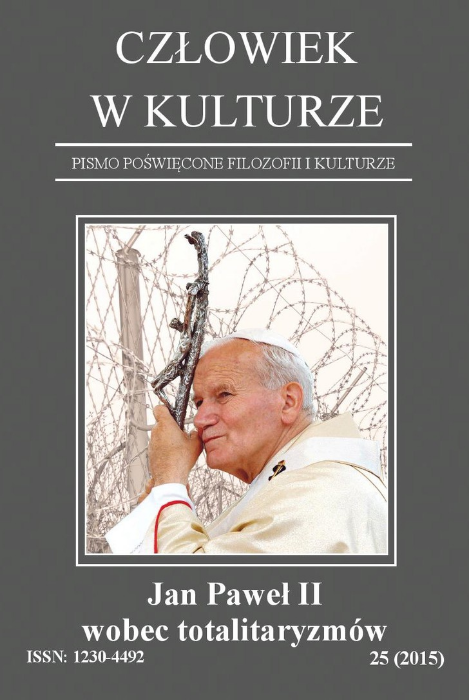Dlaczego demokracja w post-chrześcijańskiej Europie coraz bardziej przypomina totalitaryzm?
Why is democracy in post-christian Europe more and more like totalitarianism?
Author(s): Robert T. PtaszekSubject(s): Christian Theology and Religion, Philosophy, Political Philosophy, Social Philosophy, Theology and Religion
Published by: Fundacja »Lubelska Szkoła Filozofii Chrześcijańskiej«
Keywords: democracy; John Paul II; Europe; totalitarianism; Catholic Church; Christianity; ideology
Summary/Abstract: Among numerous assessments of the functioning of modern democracy particularly interesting is, as I think, a critical view of this phenomenon, which can be found in the writings of John Paul II. It is determined by the fact that the Pope was not limited to indicating the weakness of contemporary democracy but also showed its deeper causes and consequences. Presenting the views of John Paul II on this topic I refer mainly to three texts of him. The first one is the encyclical letter Centessimus Annus published in 1991.The second one is Pope’s last book: Memory and Identity. Conversations at the Dawn of a Millennium (Krakow 2005). The third text is a post-synodal apostolic exhortation Ecclesia in Europa, published in 2003. I personally think this document, the content of which goes far beyond the title statement: On Jesus Christ alive in His Church the source of hope for Europe, is the best Pope’s text on the state of Europe and its culture at the turn of the centuries. These texts show excellent orientation of John Paul II on matters relating to the proper functioning of democracy, and his knowledge of the ways in which democracy is sometimes misused today.
Journal: Człowiek w Kulturze
- Issue Year: 2015
- Issue No: 25
- Page Range: 221-238
- Page Count: 18
- Language: Polish

